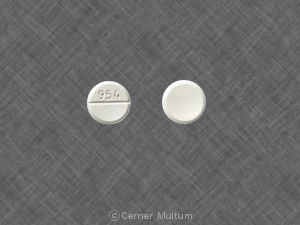Bethanechol Disease Interactions
There are 6 disease interactions with bethanechol.
- Bronchospasm
- Cardiac dysfunction
- GI/bladder neck obstruction
- Hyperthyroidism
- Parkinsonism
- Seizure disorders
Cholinergic agonist (applies to bethanechol) bronchospasm
Major Potential Hazard, High plausibility. Applicable conditions: Asthma
The use of cholinergic agonists is contraindicated in patients with uncontrolled reactive airway disease. Cholinergic agonists inhibits the hydrolysis of acetylcholine. The enhanced effect of acetylcholine produces constriction of the bronchi, increased bronchial secretions, and bronchospasm.
Cholinergic agonist (applies to bethanechol) cardiac dysfunction
Major Potential Hazard, High plausibility. Applicable conditions: Hypotension, Ischemic Heart Disease, Heart Block, Hypertension
The use of cholinergic agonists, such as bethanechol and pilocarpine, is contraindicated in patients with pronounced bradycardia, hypotension/hypertension, coronary artery disease or conduction disorders.
Cholinergic agonist (applies to bethanechol) GI/bladder neck obstruction
Major Potential Hazard, High plausibility. Applicable conditions: Colitis/Enteritis (Noninfectious), Gastrointestinal Obstruction, Peptic Ulcer, Urinary Tract Obstruction
The use of cholinergic agonists is contraindicated in patients with peptic ulcers, mechanical GI obstruction, acute GI inflammatory conditions, or urinary obstruction. Cholinergic activity may result in an increase in gastric acid secretion, GI motility, and gastric contractions. In patients with urinary retention, urinary reflux may occur if the sphincter fails to relax when the bladder is contracted by cholinergic stimulation. The reflux of urine from the bladder can cause infection in the kidneys and upper urinary tract if bacteriuria is present.
Cholinergic agonist (applies to bethanechol) hyperthyroidism
Major Potential Hazard, High plausibility.
The use of cholinergic agents may be contraindicated in patients with hyperthyroidism. Atrial fibrillation has occurred in hyperthyroid patients administered a cholinergic agonist.
Cholinergic agonist (applies to bethanechol) parkinsonism
Major Potential Hazard, High plausibility.
The use of cholinergic agonists may be contraindicated in patients with parkinsonism. Cholinergic agonists directly stimulates the parasympathetic nervous system inducing acetylcholinergic effects. Symptoms of Parkinson's disease may be exacerbated.
Cholinergic agonist (applies to bethanechol) seizure disorders
Major Potential Hazard, High plausibility. Applicable conditions: Seizures
The use of cholinergic agonists may be contraindicated in patients with seizure disorders. Cholinomimetics have been associated with convulsions.
Switch to professional interaction data
Bethanechol drug interactions
There are 63 drug interactions with bethanechol.
Bethanechol alcohol/food interactions
There is 1 alcohol/food interaction with bethanechol.
More about bethanechol
- bethanechol consumer information
- Check interactions
- Compare alternatives
- Pricing & coupons
- Reviews (17)
- Drug images
- Side effects
- Dosage information
- During pregnancy
- Drug class: miscellaneous genitourinary tract agents
- Breastfeeding
- En español
Related treatment guides
Drug Interaction Classification
| Highly clinically significant. Avoid combinations; the risk of the interaction outweighs the benefit. | |
| Moderately clinically significant. Usually avoid combinations; use it only under special circumstances. | |
| Minimally clinically significant. Minimize risk; assess risk and consider an alternative drug, take steps to circumvent the interaction risk and/or institute a monitoring plan. | |
| No interaction information available. |
See also:
Further information
Always consult your healthcare provider to ensure the information displayed on this page applies to your personal circumstances.


